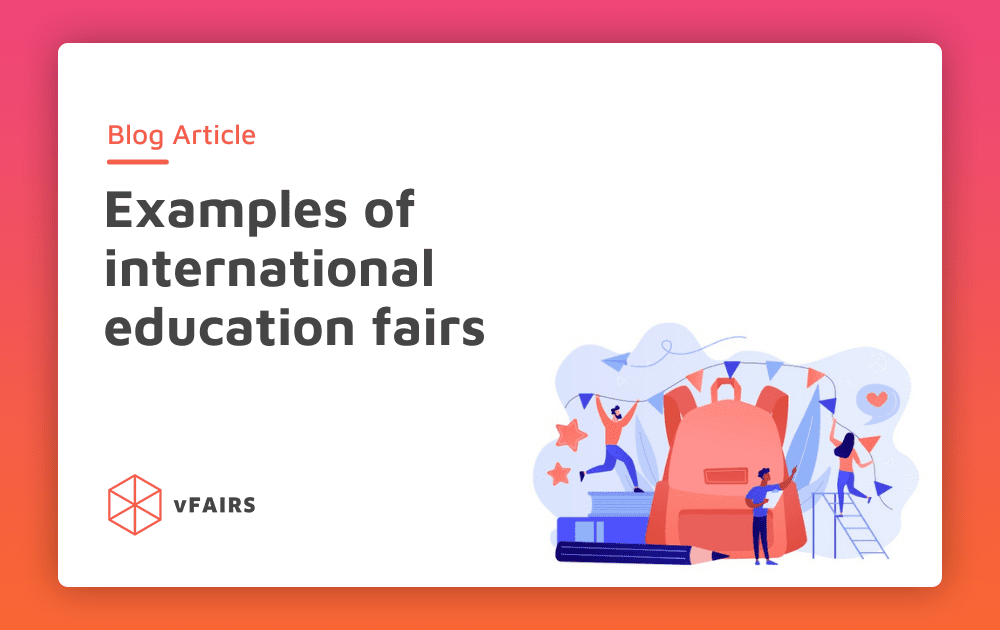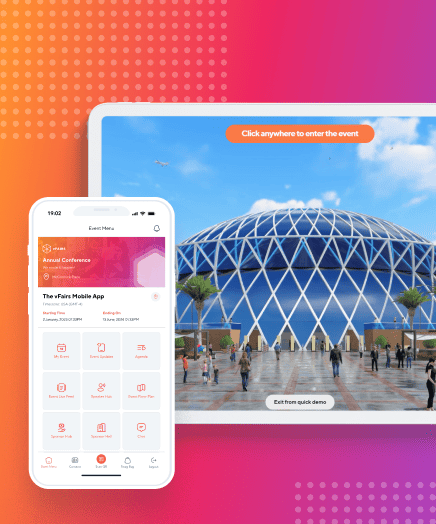Virtual education fairs facilitate connections between students and universities. It is a platform where multiple universities can come together under one virtual roof and meet a huge number of students from across the globe. Through these virtual education fair platforms, universities can collect valuable information about students and can gauge their interests. On the other hand, students and parents can visit multiple universities and get all the information they need to decide where and how to apply.
In a world where travel is heavily restricted owing to the health crisis, the importance of virtual international education fairs multiplies. Life goes on, and students graduate from schools and move on to universities, albeit virtually. However, for that students must have all the requisite information to make an informed decision.
When you are organizing your virtual education fair, you need a winning formula. By going virtual you already have a global audience you need to reach. Now you need to actively engage them, create opportunities and provide a valuable experience for them.
Learning from a few vFairs customers who have hosted successful virtual international education fairs, let us see which features helped them amplify their success.
Campus Abroad
Previously accustomed to in-person education fairs, Campus Abroad had to realign itself when COVID-19 struck. They decided to host a virtual education fair instead of a physical one with vFairs, bringing universities and students onboard. The challenge was to make them comfortable with the venue and promise the same value they got from the in-person event. They decided to create a platform that creates immense learning opportunities for the students as well as the universities coming in. The features from the vFairs platform that supported this among others were:
Downloadable collateral
A key feature that really appealed to Campus Abroad was the ability to upload a ton of material online. This gave students access to a lot of resources, something that was not easily available at the in-person events. They could easily save the information they required in their ‘swag bags’ and download it after the event. This feature created a lot of ease and accessibility of information for students.
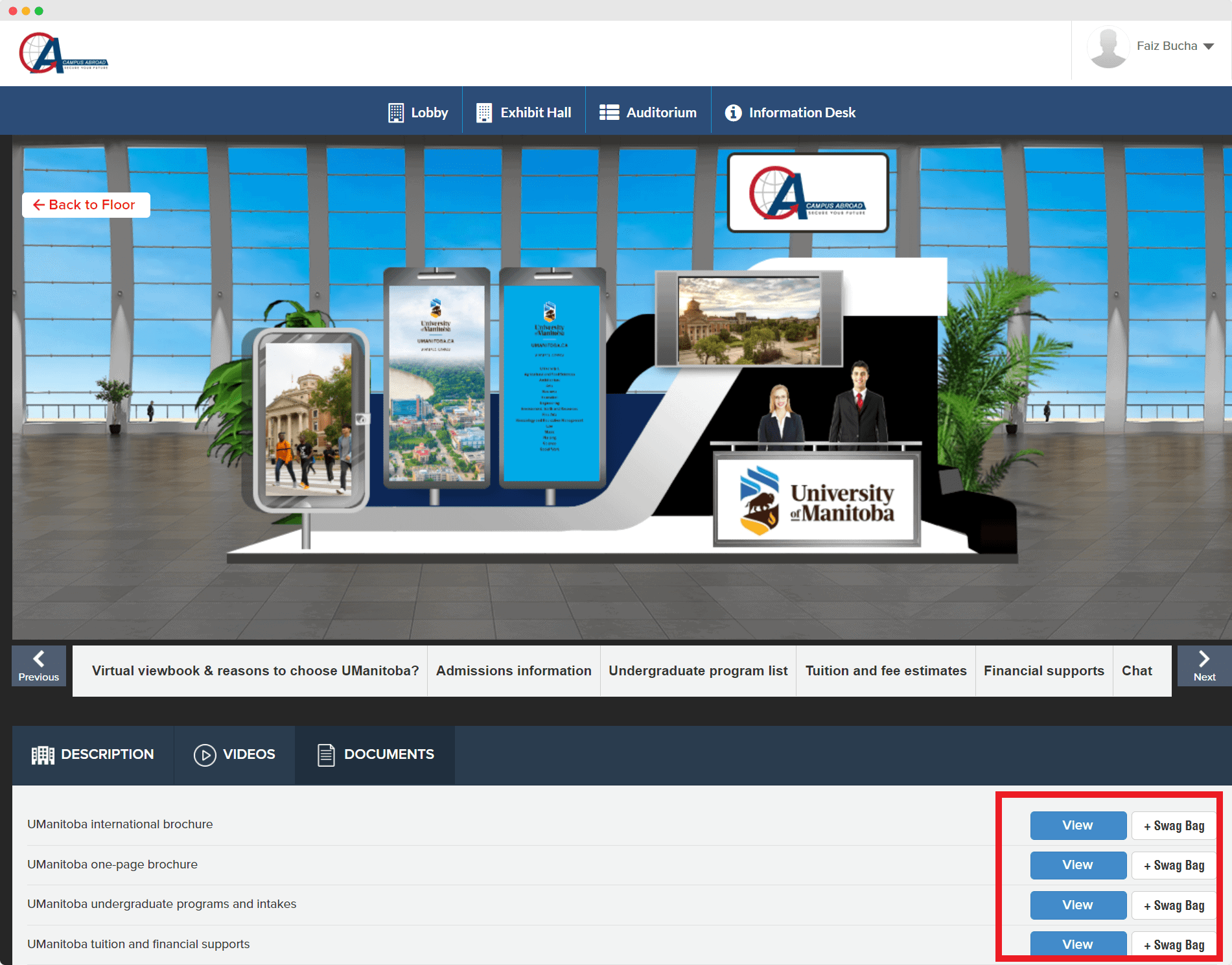
Event reports
In-person events did not allow the Campus Abroad team to collect detailed data on the attendees, the booths they visited or the documents they downloaded. However, the virtual platform allowed them to easily generate reports, track attendees, and see where the most virtual ‘footfall’ was. In short, they had empirical data which supported the success of their events.
Cornell University
For Cornell University, the objective was to host a physical Resource Fair which was not limited to the local students. Catering to students with special needs was also top priority. In their in-person events, they often felt students from other cities, states or international countries were unable to attend due to the expensive travel costs involved. Moreover, they wanted to deliver an event which was inclusive hence, that required planning and investment. Previously, students unable to attend the Resource Fair had no alternative way to access the information. No options to view content at a later time, and get acquainted with the university’s services.
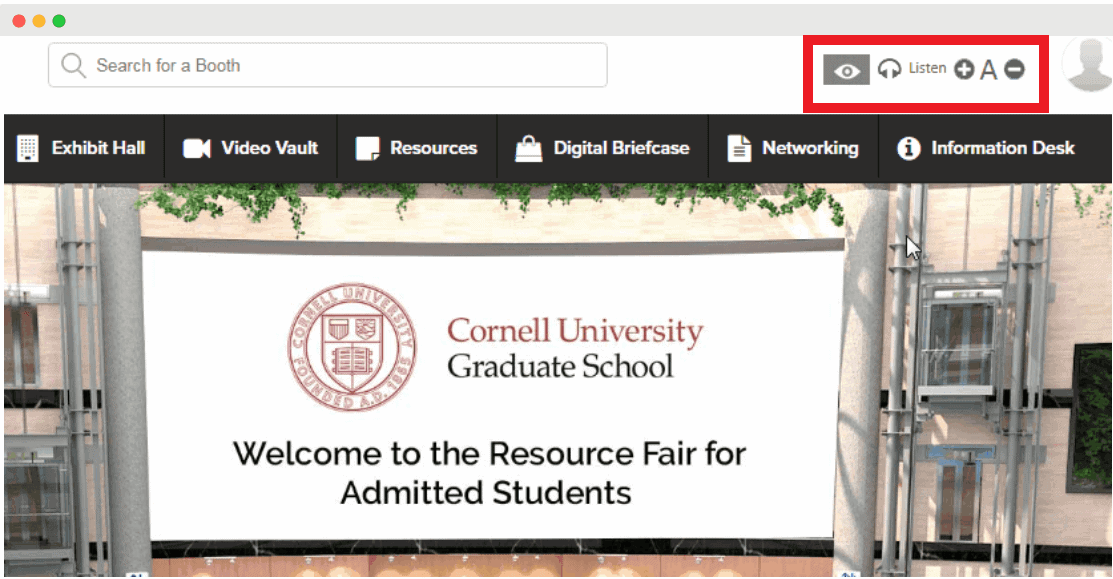
With these challenges in mind, Cornell decided to team up with vFairs to create a virtual event platform where streamlined information will be available and all admitted students could benefit without exception. More than anything, they were focused on delivering an event that aced accessibility for students unable to travel or who had special needs.
To spearhead an extraordinary user experience, the vFairs team set up the platform in compliance with Web Content Accessibility Guidelines (WCAG). This meant that differently-abled admitted students had access to special tools such as color contrast, text character size and page narration etc. to help them explore the resources without any obstacles.
Youstudy
YouStudy.com was interested in hosting an online education fair that connected the Middle East based students with British universities to facilitate increased awareness and promotion of their academic programs. It allowed Middle Eastern students to easily explore their higher education options in Britain-based universities. To make the experience comfortable for the organizer and the attendees, vFairs included specific features. These were sure to enhance their experience. Among many others let’s discuss three.
Bilingual platform
Successfully catering to British university representatives and Middle Eastern students meant hosting an event that catered to both English and Arabic languages based on user preferences. The platform was equally accommodating towards both visitors and ensured that communication was never an obstacle. The event navigation and information exchanges in both languages strengthened audience engagement.
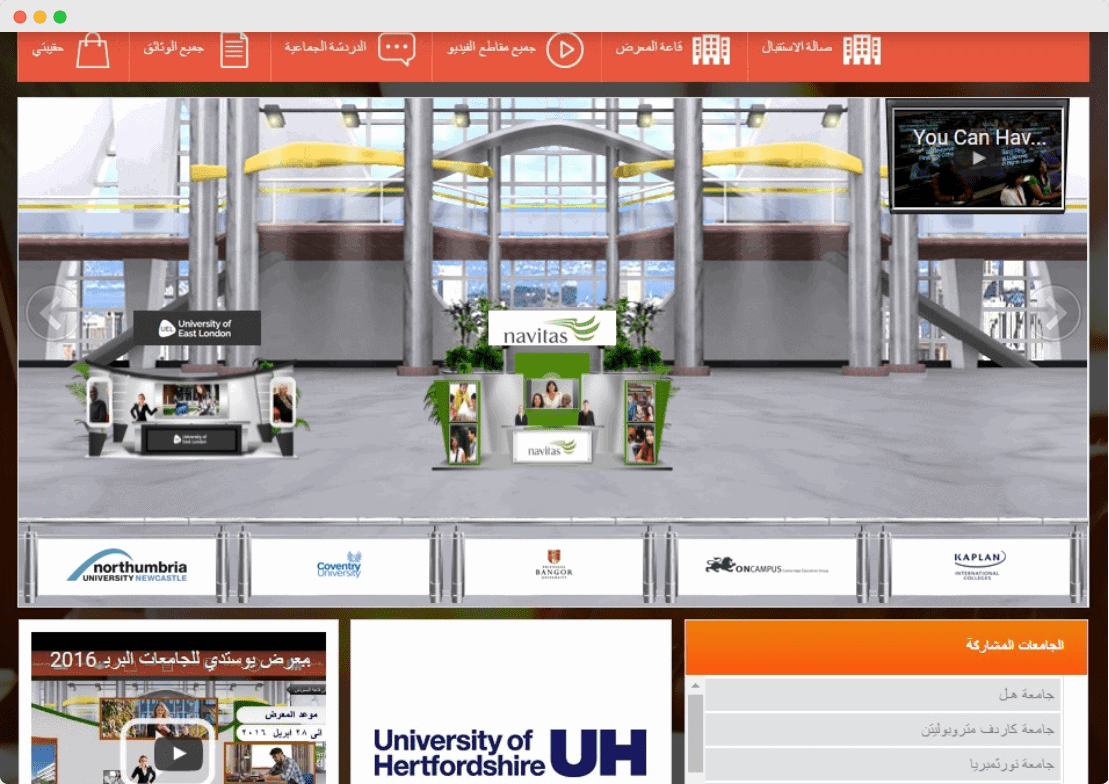
Event marketing
YouStudy.com availed vFairs’ marketing support to reach their intended audience. An email shot was sent to 50,000 users in the database. These users fit the desired profile including nationality and age. Moreover, banners were also used to promote the event and attract attention towards driving registration and student attendance.
1:1 chat
The students who were unable to speak directly to university representatives using the one-on-one chat feature, the “Email Us” option at the booths allowed them to send a personalized message to communicate their questions or concerns to the admissions staff.
Thus, communication channels remained open even when the university representatives had gone offline after the event’s defined hours of operation.
These specific cases in point help us understand how we can leverage virtual international education fairs and bring an extraordinary experience to the students and universities alike. Travel restrictions and safety precautions may prevent international student recruiters from holding education fairs or meeting potential students in person for the foreseeable future. Even then, who can deny the world of opportunities that a virtual setting brings. Increased reach, global audience and reduced expenses just scratch the surface.

